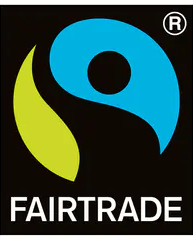
Fairtrade Certification: Fashion That Puts People First
Explore how the Fairtrade Certification empowers workers, supports ethical production, and ensures fairness across the global fashion supply chain.
Our Commitment
Behind every T-shirt, there’s a story — and Fairtrade makes sure it’s a fair one.
The Fairtrade Textile Standard ensures that the people who make our clothes are treated ethically, paid fairly, and protected under safe working conditions.
At LivableFit, we consider Fairtrade Certification one of the most powerful labels for building a fashion industry rooted in justice, transparency, and human dignity.


What Is Fairtrade Certification in Fashion?
The Fairtrade Textile Standard, managed by Fairtrade International, sets rigorous social, economic, and environmental criteria for textile production — from cotton farms to sewing factories.
It’s built on three pillars:
Fair wages and worker empowerment
Safe working conditions and union rights
Sustainable environmental practices
The goal: transform the textile supply chain into one where workers and farmers thrive — not just survive.
How the Fairtrade Textile Standard Works
Fairtrade goes far beyond labeling a final product — it’s about reshaping entire systems.
To be certified, companies must:
Pay living wages across the supply chain.
Ensure freedom of association and collective bargaining.
Provide safe and healthy workplaces free from discrimination or child labor.
Use sustainable raw materials (e.g., Fairtrade cotton) and reduce toxic inputs.
Be audited regularly by independent Fairtrade inspectors.
Certification applies to factories and production units, not just brands — ensuring that every worker in the chain benefits directly.
Why Fairtrade Matters for Sustainable Fashion
While many certifications focus on environmental impact, Fairtrade puts people at the heart of sustainability.
Here’s why it matters:
✅ Empowers workers – ensures fair pay, contracts, and the right to unionize.
✅ Protects communities – provides a Fairtrade Premium for social projects (education, healthcare, clean water).
✅ Encourages equality – supports women’s leadership and non-discrimination policies.
✅ Improves transparency – guarantees traceability from fiber to finished product.
✅ Drives climate justice – supports smallholder farmers adapting to climate change.
How Brands Get Fairtrade Certified
To become Fairtrade certified, a textile manufacturer or brand must:
Apply to FLO-CERT, the independent certification body of Fairtrade International.
Undergo audits assessing labor rights, environmental impact, and wage structures.
Implement living wage plans within a fixed time frame.
Provide training for workers and management on safety and equality.
Maintain transparency through annual compliance reporting.
Once certified, the brand can use the Fairtrade Mark on products that meet all criteria.
Examples of Fairtrade Certified Fashion Brands
Many ethical fashion pioneers proudly carry the Fairtrade mark, including:
People Tree – one of the first Fairtrade fashion brands in the world.
Armedangels – combining Fairtrade cotton with modern, minimalist design.
Patagonia – supporting Fair Trade Certified™ sewing factories worldwide.
Veja – Eeco-sneaker from bio‑cotton & natural rubber.
Ethletic – Fairtrade cotton canvas + natural rubber
FAQs
What does Fairtrade certified mean in fashion?
It means that textile workers and farmers receive fair wages, safe working conditions, and social benefits, verified through independent audits.
Is Fairtrade the same as organic certification?
No — Fairtrade focuses on ethical labor and fair pricing, while organic certifications (like GOTS) focus on environmental and material purity.
What’s the difference between Fairtrade and Fair Trade Certified™?
“Fairtrade” refers to Fairtrade International (FLO) standards, while “Fair Trade Certified™” is the North American system managed by Fair Trade USA. Both promote fairness and sustainability.
Shop Fair, Live Fair with LivableFit
When you choose Fairtrade Certified fashion, you’re investing in dignity, equality, and empowerment for the people who make your clothes.
At LivableFit, we champion Fairtrade brands because real sustainability starts with human rights and living wages.
💡 Try it now: Paste any product link into the LivableFit Advisor to check its sustainability score and find Fairtrade-certified alternatives.
“Fairtrade certification helped us build a truly ethical supply chain. Paying living wages and empowering workers has not only improved lives but also strengthened our brand’s purpose.”
Leena R.


★★★★★
LivableFit
LivableFit Advisor™ helps you check how sustainable your clothing choices really are.
Instantly evaluate fashion items with real-time data, uncover eco-scores, detect greenwashing, and discover more responsible alternatives — all powered by AI.
CONTACT
Based in Berlin, supporting conscious shoppers across Europe.
quick links 🔗
join our community 🌿
Brands We Support (coming soon)
© 2025 LivableFit. LivableFit Advisor™ is a trademark of LivableFit. All rights reserved.
trusted by
